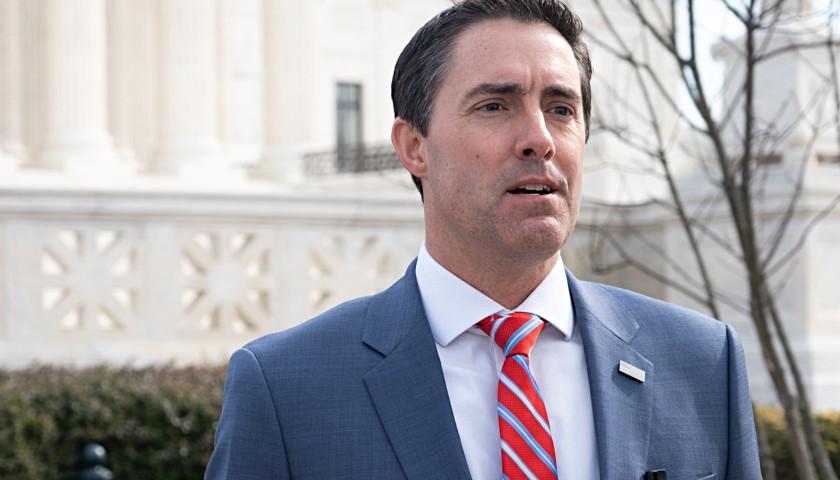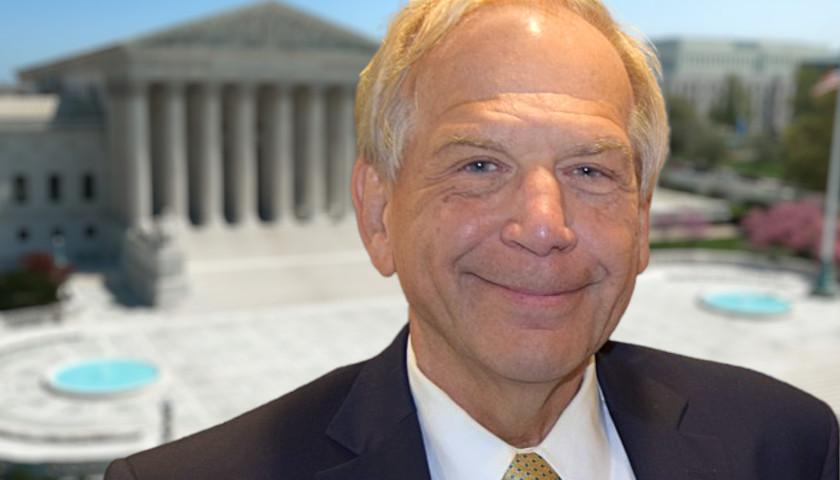Kari Lake and Mark Finchem filed a Supplemental Brief with the U.S. Supreme Court on Tuesday, adding support for their Petition for Writ of Certiorari and Motion to Expedite asking the court to hear an appeal of the dismissal of their lawsuit to stop the use of electronic voting machine tabulators in elections. The defendant Arizona officials failed to file a response to the pair’s petition, boosting the chances SCOTUS might accept the case and implying they did not object to the statements in the petition.
The new brief added more allegations of false representations by Maricopa County officials. It said the courts relied on their false representations when they dismissed and affirmed their case, sanctioning the pair’s lawyers. The Ninth Circuit Court of Appeals held that the plaintiff’s injuries were “too speculative” for Article III, which requires showing of an injury. The brief said the court based this determination “in part on false representations that Maricopa County performed required preelection logic and accuracy (‘L&A’) testing and used certified and approved voting system software.” The court “expressly relied on false representations that Maricopa’s elections were protected from manipulation.”
The Petition for Certiorari provided new evidence that “Maricopa did not do the required L&A testing and used altered, and hence, uncertified software.” The county used the Election Assistance Commission (EAC)’s certified software, which was approved for use in Arizona, but the software was altered concerning the machine behavior settings that govern how ballots are read and tabulated, the brief asserted. Additionally, the brief said that the county only tested five spares in 2020 and 2022 instead of testing all the tabulators, which was required to give the public confidence that ballots are accurately read and tabulated.
The supplemental brief said that “respondents have a duty to correct prior false material evidence presented to the lower courts” since “[i]f respondents previously knew their evidence was false, they committed a fraud on the courts.” It went on to say that “Regardless of whether respondents’ counsel knew the evidence was false when filed, they are on notice now that the material evidence was false.”
Additionally, since the respondents failed to file Briefs in Opposition (BIO), the brief said, “If respondents learned of their evidence’s falsity from petitioners’ Motion to Expedite, respondents violated their duty of candor by waiving their BIOs.”
The brief accused the respondents of agreeing with their petition since they failed to file BIOs.
“Under respondents’ ethical duty of candor, those waivers are affirmative statements that respondents have nothing to correct,” the brief said.
The brief cited the Rules of Professional Ethics, Rule 3.3(a)(3)’s duty to correct and support case law. That rule provides, “If a lawyer, the lawyer’s client or a witness called by the lawyer has offered material evidence and the lawyer comes to know of its falsity, the lawyer shall take reasonable remedial measures, including, if necessary, disclosure to the tribunal.”
If the respondents are not responding because they believe they have a duty of confidentiality to their clients, the brief pointed out that “[t}he Arizona Supreme Court’s Attorney Ethics Advisory Committee recently found the Arizona duty of candor to overcome counsel’s duty of confidentiality to clients who benefited from prior false evidence.”
The brief stated, “Courts generally treat a failure to oppose a motion as consent to the relief requested, citing Weil v. Seltzer. That case held that an appellant who failed to file a response within the time prescribed “is deemed to have waived his opposition.” Similarly, the respondents did not file an objection to the Motion to Expedite, so the brief said the court should grant that as well.
The brief said opposing counsel may be violating Rule 8.2 of the U.S. Supreme Court Rules, which authorizes sanctions for “conduct unbecoming a member of the Bar.”
The brief concluded, “[P]etitioners show that — inadvertently or not — respondents prevailed below based on false evidence and now intentionally declined either to defend or to correct the allegedly false statements.”
The brief asked the court to “not deny a writ of certiorari without at least requesting BIOs or a response to petitioners’ Motion to Expedite. Alternatively, this Court can summarily grant the writ and reverse, without the need for merits briefing.”
– – –
Rachel Alexander is a reporter at The Arizona Sun Times and The Star News Network. Follow Rachel on Twitter / X. Email tips to [email protected].
Photo “Kari Lake” by The Kari Lake. Photo “Mark Finchem” by Mark Finchem.








